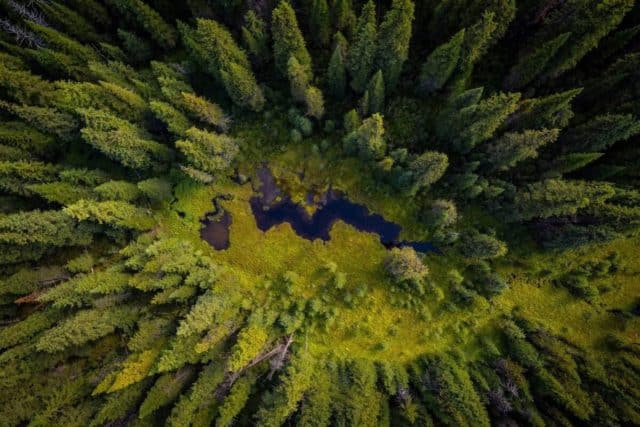
I found this Saanich News story interesting (thanks to Nick Smith!).
A poll showing most Canadians believe their governments aren’t doing enough to protect forests from logging is being coordinated with efforts to block purchases of Canadian forest products in the U.S., the president of the Forest Products Association of Canada says.
Derek Nighbor describes a news release and poll out this week from Nature Canada as “disingenuous,” implying unregulated destruction of forests across the country, including B.C., which has been targeted by anti-logging protesters for decades. The survey refers to Canada’s boreal forest, but does not disclose that more than half of Canada’s vast forests have no industrial activity at all. Of the 48 per cent that does, half of that is under conservation measures that are not counted as protection, Nighbor said in an interview Monday (March 28). He said Canada is responsible for 40 per cent of the environmentally certified forests in the world.
Nature Canada lists among its biggest donors some of the U.S. foundations that backed the creation of B.C.’s Great Bear Rainforest preservation area in 2007, the Gordon and Betty Moore Foundation and the William and Flora Hewlett Foundation. Nighbor notes that Nature Canada’s “champions circle” of donors, contributing $100,000 a year or more, also lists Parks Canada and Environment and Climate Change Canada.
Nighbor said he has contacted those federal departments to ask why they are helping to finance an organization that is providing misleading information about Canada’s forest practices and is also lobbying the U.S. states of California and New York to stop buying Canadian forest products.
Now, if true, that would be fairly weird, but not impossible. A federal government (country A) paying a group that lobbies (in country B) against imports from their own country (A)? When there’s probably another government agency promoting exports from A to B? I don’t think any long-term federal employee would be surprised that this could happen, if it did.
So I looked into it a little deeper and found this from the National Observer from last June. It has to do with California’s Assembly Bill 416. Perhaps there could (have been?) an amendment to require state contractors to only use California wood products, which might have remediated the supporters’ concerns with Indigenous Rights. I don’t know how California rates on UNDRIP.
You might wonder.. “don’t we import many things from China, and how are they doing on UNDRIP?” Well, it turns out they have no indigenous people, according to the way they think about it. Anyway,
It would require contractors working for the state to prove that products coming from boreal and tropical regions respect the rights of Indigenous people and aren’t linked to forest destruction. In its text, advanced by the state assembly earlier this month, lawmakers noted that deforestation plays a role in fuelling the climate crisis and is often intermingled with the violation of Indigenous consent.
The Observer article gives both the NRDC side of the story and the Canadian government’s side of the story.
The other side:
In an April 21 letter, Yakabuski asked state legislators to remove references to the boreal forest from the bill and said it could affect 25,000 Ontario jobs and $2.8 billion in gross domestic product. In a statement to National Observer, Ryan Ferizovic, a spokesperson for Yakabuski, said leaders in more than 40 Indigenous communities have also taken issue with the bill. He also said Ontario’s regime has “strict” regulatory requirements and “thoughtful management” that ensures logging sites aren’t degraded.
…
If Yakabuski’s statement is true, it makes me wonder..do the affected Indigenous People decide themselves what is good for them, or do others?. If so, whom?
There’s also this..
It’s not clear exactly how much product from Canada’s boreal forest is exported to California. But in a letter to California legislators, Canada’s Consulate General said California imported US$949 million ($1.17 trillion) in building materials and other forestry-related goods in 2020.
“This bill is trying to guarantee and make sure that California is not itself implicated in these violations of internationally recognized Indigenous rights,” Skene (of NRDC) said.
Ferizovic said Ontario’s logging regime is globally recognized for its high standards, and includes consultation with Indigenous and Métis communities.
Perhaps only economists understand when it’s legally OK to prefer/not prefer/not allow imports by other governments.
And who is pushing it..?
The push has been backed by environmentalists on both sides of the border and a group of investors representing US$1.6 trillion in assets.
Now if you look at the list of investors, it’s a fascinating group, including the investment arms of several religious institutions. I’m sure that their motives are for the good; I’m just not sure that goodness, in this case, is as clear as they might think it is. I’ll try to find out how such groups decide to sign on to letters like this.